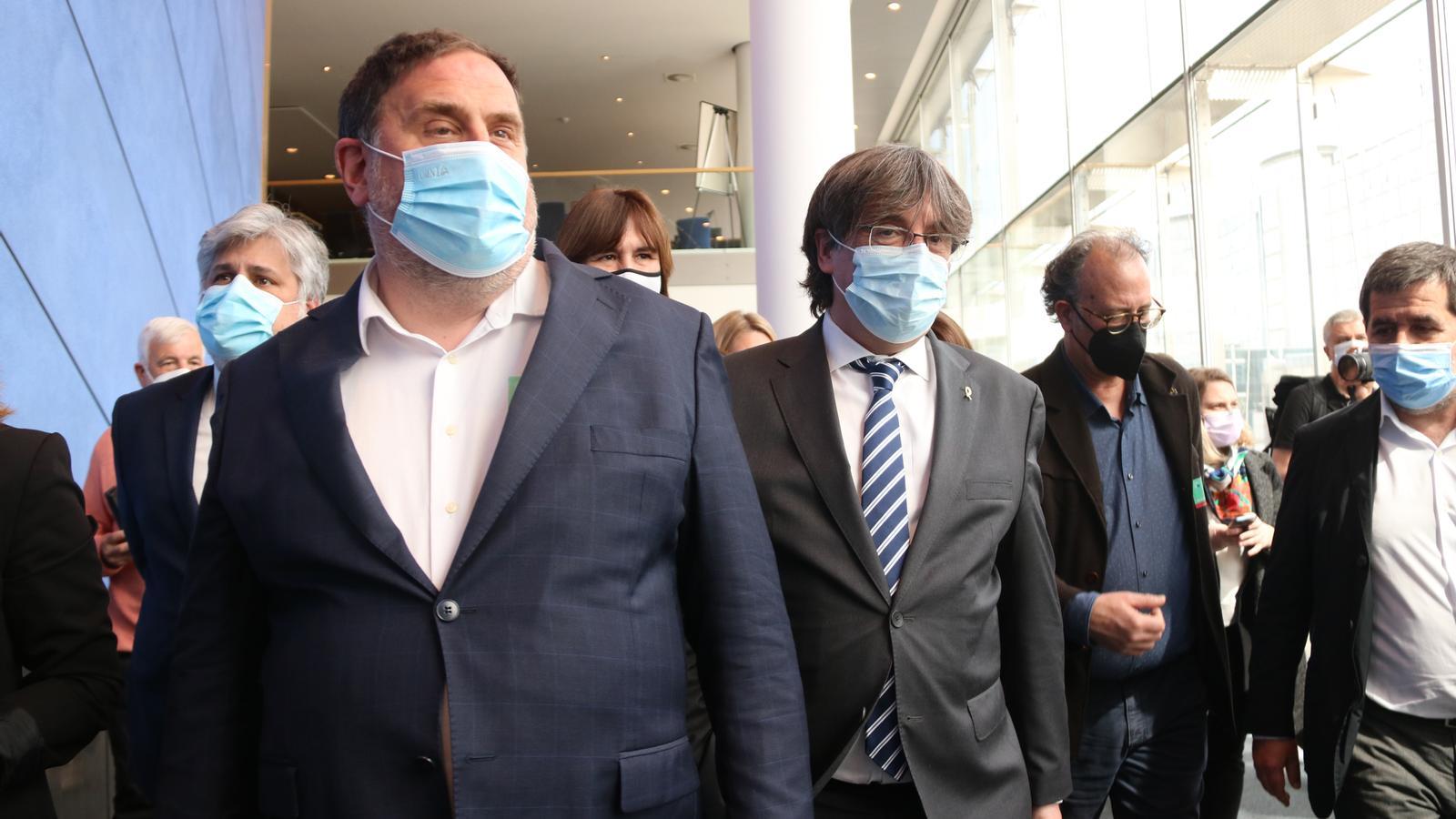Independence movement to sue in several European countries over Catalangate
Puigdemont calls for immediate "political consequences" in Madrid, but Junqueras defends maintaining dialogue


BrusselsThe Catalan pro-independence movement has announced a new international legal offensive of in the wake of the cybersurveillance of several politicians, activists and journalists revealed this week. From the headquarters of the European Parliament in Brussels, former president Carles Puigdemont and former vice president Oriol Junqueras, have announced that they will file complaints in five European countries, specifically in Belgium, Switzerland, Luxembourg, Germany and France; the countries where Pegasus spyware was used against pro-independence supporters and their allies, according to Citizen Lab's investigation.
The legal offensive is also expected to be huge. Representatives of the independence movement have given few details, but have advanced that there will be individual and collective complaints that will be directed mainly against the company NSO Group, developer of Pegasus spyware. For example, Carles Puigdemont's lawyer alone, Gonzalo Boye, expects to take on more than fifteen cases. "We will sue everything," said Puigdemont. Paluzie, from the ANC, has explained that the organisation also plans to sue the Spanish National Intelligence Centre (CNI) and Spain's security forces. Not all of the independence movement's lawyers agree with this strategy, and some prefer to only sue NSO Group.
Even so, according to Citizen Lab researcher John Scott-Railton, who intervened in the press conference by videocall, several clues point to the Spanish government as responsible for this massive cyber espionage against Catalan civil and political society. This is not only because Pegasus is exclusively sold to governments, but because any other player carrying out such a campaign would run serious risks of diplomatic and legal conflicts. According to Scott-Railton, the case's size deserves a thorough investigation, as has also been called for by the European Commission.
Tension within the independence movement
It has taken this new case against the independence movement as a bloc to see Carles Puigdemont and Oriol Junqueras sitting together again, in an event that sought to reaffirm the independence movement's unity of action. However, it has also highlighted the tension between the two politicians and their discrepancies. The two members of the government which organised the 2017 referendum entered and left the room together, gave each other a hug and have shown several signs of cordiality, yet they are still far apart when it comes to deciding what to do in Madrid. The leader of Junts warned during his speech that "it would not be understood that after this scandal things remain the same and trust continue to be placed in a government that is part of this criminal plot". For Puigdemont, the pro-independence movement as a whole "has to direct its actions in the face of this new reality", because it is not possible to trust a government that has broken into one's privacy: "In your kitchen, with your daughters", he said. The exiled pro-independence leader has not wanted to clearly ask ERC to withdraw its support of Pedro Sánchez's government, but he has urged for "political consequences".
On the other hand, Junqueras has defended the dual strategy of continuing the confrontation by legal means but also maintaining dialogue: "We want to use all the tools at our disposal. We do not want to give away a banner [of dialogue] that will end up being essential," he said, thus claiming before Puigdemont the need to keep this path open in Madrid.
